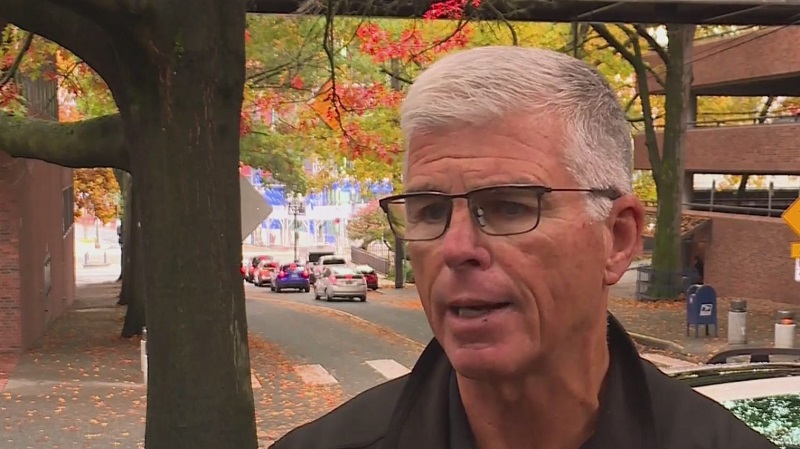PORTLAND, Ore. (KOIN) — On Thursday, Gov. Kate Brown granted 74 juveniles commutations but the action doesn’t mean they are about to be released. It allows them an opportunity for a parole hearing or possible early release.
The inmates being considered all committed these crimes as teenagers. About 3/4 of the estimated 250 prisoners who meet Brown’s criteria were sentenced under Measure 11, the states minimum mandatory sentences for serious crimes. It includes no early release and if you are age 15 or older, you’re tried as an adult.

Retired Multnomah County Chief Deputy District Attorney Norm Frink prosecuted at least two of the men on the list of those whose sentences are up for reconsideration.
“This is spitting in the face of law enforcement and crime victims — not even consulting them before taking this action,” Frink said. “It’s also flying in the face of of the procedural requirements of Oregon law, so it’s a lawless act in addition to that.”
‘He is a sociopath’
In 2012, Randy Tennant’s nephew, Andrew Johnson, was sentenced to life in prison for stabbing Randy’s mother to death when he was 17.
Johnson is one of the convicted juveniles on Brown’s list of prisoners being considered for parole or possible early release.
This is now happening 2 years after Senate Bill 1008 went into law changing the way Oregon prosecutes convicted juveniles when they become adults.
Tennant is not happy.
“He is a danger to society. He is a sociopath,” Tennant told KOIN 6 News. “We were told that for extreme offenders, that [Senate Bill 1008] would not go retroactive to someone like him.”
Tennant fears for the safety of his family if his nephew were to be released from prison.
“This isn’t ‘I hijacked a car, I shop lifted.’ This is someone who brutally murdered somebody and has bragged about doing it prior at a young age,” Tennant said. “He’s a sociopath – he’s not rehabilitated.”
One person who is not being considered is Kip Kinkel, who killed his parents before going on a shooting rampage at his Oregon high school in 1998, killing two classmates and injuring 25 more.

About Senate Bill 1008
Measure 11 crimes are some of the state’s most serious crimes, including sexual abuse, rape and murder. The measure also applied mandatory minimum prison sentences.
Senate Bill 1008 was passed in 2019 amending Ballot Measure 11. Senate Bill 1008 ensures youth receive a waiver hearing where a judge determines if it’s appropriate to impose adult punishments.
If the youth is sentenced in adult court they are still entitled to a “second look” hearing half way through their sentence or a parole hearing after 15 years. Prior to SB 1008, individuals age 15 and older who committed a Measure 11 crime were automatically waived into adult court.
The bill was not retroactive, meaning youth sentenced in 2020 for 15 or more years are unable to petition the Oregon State Board of Parole and Post-Prison Supervision for future release consideration.
Recognizing that SB 1008 itself was not applied retroactively, the Governor intends to use her constitutional clemency powers to consider youth—on an individualized basis—who didn’t benefit from that legislation.
“Many of these young individuals pursue their education, fully engage in treatment or other skills-based programs, and become leaders within their institution prior to or before ever transferring to the custody of DOC,” Brown said.
According to a statement provided by the governor’s office, Brown’s approach allows incarcerated youth to either be reviewed for a potential conditional release or an opportunity for a parole hearing.
The governor’s office said in a statement in part, “Governor Brown believes that we must put more emphasis on preventing crime and rehabilitating youth than on harsh punishments and lengthy and costly prison sentences.”
The governor’s statement said youth must be held accountable — but their brains are still developing. The criminal justice system doesn’t take this into consideration.
Reviews will be done over the next several months, Brown’s office said, and no decisions will be made until December or January. Each case will be reviewed separately.
Victims and their families will be notified according to the standard victim procedure for commutations.
Reacting to the news, the Oregon Justice Resource Center’s Youth Justice Project Director and Managing Attorney Gabe Newland issued the following statement on Saturday morning:
“The governor’s commutation order is good news. For too long, Oregon has tolerated youth sentencing practices that disregard international legal standards and relevant brain science. With the passage of Senate Bill 1008, the legislature improved the law in important ways, but those improvements were exclusively forward looking. They did not extend backwards to those who were prosecuted and sentenced under the old laws. The governor’s commutation order begins to address that problem. It gives many people a chance to prove that the harm they caused as kids, however serious, does not reflect the character of the adult they’ve become.”